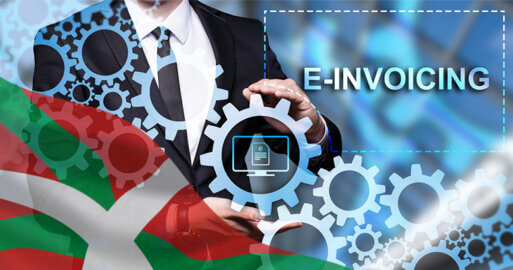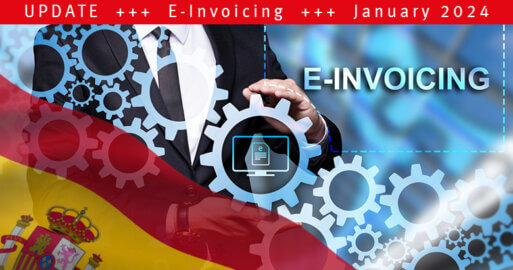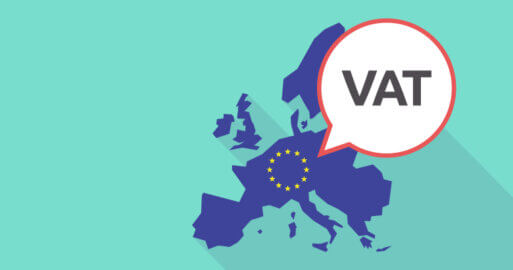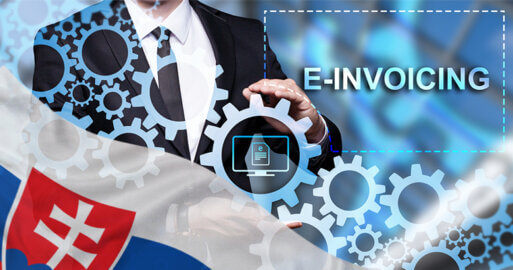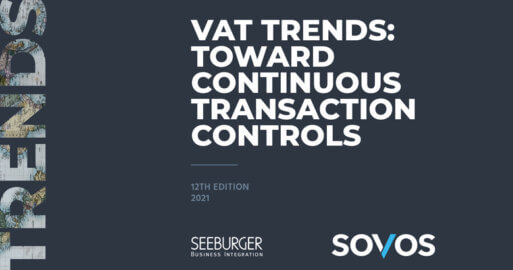The Bundesrat (Upper House of the German Parliament) Specifies Its Requirements for the Introduction of a Mandatory Electronic Invoice (E-Invoice) In Germany
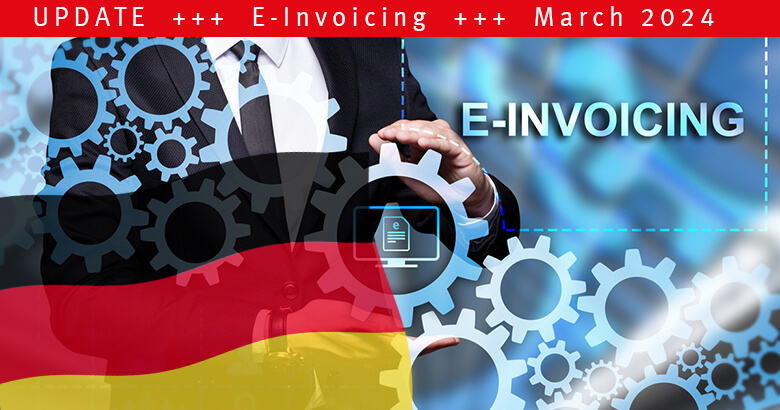
+++ Update March 2024: E-invoicing becomes mandatory in Germany – Bundesrat adopts the Growth Opportunities Act
In its 1042nd meeting on 22 March, 2024, the Federal Council1 approved the Growth Opportunities Act2. This legislative package includes important regulations for the introduction of mandatory e-invoicing in Germany.
Now that the e-invoicing obligation for the B2G (Business-to-Government) sector has largely been implemented in Germany, the e-invoicing obligation for domestic invoices in the B2B sector will start gradually from 01 January, 2025 to the end of 2027. The introduction of a reporting system in Germany in order to combat VAT fraud is planned to start in 2028.
In principle, businesses have the right to issue an invoice if they provide a delivery or other service. If this service is provided to another business and the transaction is not tax-exempt in accordance with § 4 No. 8 – 29 UStG, they are required to issue an invoice. Businesses have six months to issue the invoice (from the time the service is provided). These basic provisions remain unchanged by the Growth Opportunities Act. What is new, however, is the obligation to issue invoices electronically in accordance with § 14 para. 2 sentence 2 no. 1 UStG-E.
Which companies and transactions are generally subject to the obligation to issue invoices electronically?
The obligation to issue an electronic invoice applies exclusively to business relationships between companies (B2B). In addition, both the supplier and the recipient must be residents in Germany (or in territories pursuant to § 1 para. 3 UStG).
In order to be considered a resident in Germany, either a registered office, a management or a permanent establishment (involved in the corresponding turnover) in Germany is required. If there is no registered office, domicile or habitual residence in Germany pursuant to § 14 para. 2 sentence 3, UStG-E is also sufficient. Therefore, VAT registration in Germany without residence does not constitute an obligation to issue electronic invoices.
What are the exceptions to the e-invoicing obligation?
- Invoices with an amount of less than € 250
- Tax-exempt deliveries and services according to UStG § 4 No. 8 – 29
When will the e-invoicing obligation enter into force?
The basic obligation to issue invoices electronically enters into force on 01 January, 2025. However, in order to take into account the expected high implementation costs for companies, the legislature has introduced transitional regulations for the period from 2025 to 2027.
Starting 01 January, 2025, there will be an obligation to receive e-invoices
Starting 01 January, 2025, the receiving of e-invoices in accordance with EN 16931 will be mandatory for all German B2B transactions. The Federal Ministry of Finance (BMF) already declared on 02 October, 2023 that ZUGFeRD from version 2.0.1 and XRechnung generally represent an invoice in a structured electronic format that meets the requirement.
This means that starting 01 January, 2025, there will be an obligation to receive the following formats in accordance with EN 16931:
- ZUGFeRD: Hybrid format – human-readable PDF/A-3 with embedded XML file in the syntax “Cross-Industry Invoice” (CII)
- XRechnung: XML file in the syntax “Cross-Industry Invoice” (CII)
- XInvoice: XML file in the syntax “Universal Business Language” (UBL)
EDI procedures can still be used
In addition to the requirement that an electronic invoice must comply with the standards of EN 16931, there is also the option of using other electronic invoice formats that are interoperable with EN16931, i.e. if the required information can be extracted into a format that complies with or is compatible with the European standard. Under these conditions, the widely used electronic data interchange (EDI) procedure, for example, can continue to be used after 31 December, 2027.
What is permissible in 2026?
Paper invoices can continue to be used for B2B transactions throughout 2025 and 2026. Electronic invoices that do not comply with the new format will also remain permissible during this period, although (as before) the consent of the invoice recipient is required (§ 27 para. 38 no. 1 UStG-E).
What is permissible in 2027?
In 2027, B2B sales can continue to be processed using paper invoices. Electronic invoices that do not comply with the new format will also remain permissible during this period. As already mentioned for the years 2025 and 2026, the consent of the invoice recipient is required for this. However, an additional requirement is that the invoice issuer has a maximum turnover of € 800,000 in the previous year.
Businesses whose previous year’s turnover (2026) exceeds this limit still have the option of sending invoices via EDI procedure. This applies to sales made in 2026 or 2027, even if the required information is not extracted into a format that complies with or is compatible with the European standard.
What will happen in 2028? The introduction of the reporting system in Germany and the EU requirement “ViDA – VAT in the Digital Age”
Starting in 2028, the new requirements for electronic invoicing will become mandatory. EDI procedures will no longer be permitted as of 2028 if the required information cannot be extracted into a format that complies with or is compatible with the European standard.
The conditions for the reporting system envisaged in the coalition agreement and the ViDA measures planned by the EU will also be in place by this time. The ViDA proposal at EU level stipulates that only intra-Community B2B transactions must be reported starting 01 January, 2028. In Germany, the plan is to introduce a reporting system that meets both requirements (national and EU requirements) in order to avoid placing an unnecessary burden on the economy. This means that the following sales are to be sent to the reporting system:
- National B2B sales (in accordance with the German Coalition Agreement)
- Cross-border B2B sales (according to EU-ViDA)
The national implementation of the reporting system in Germany is closely coordinated with the EU level.
SEEBURGER supports you with the introduction of e-invoicing and CTC processes in the B2B and B2G environment.
As an experienced provider of e-invoicing solutions, we support you with the easy and standardized implementation of global e-invoicing obligations and transaction-based continuous VAT reporting. In addition to EDI, ZUGFeRD, Factur-X, XRechnung and Peppol for Germany, SEEBURGER also supports global e-invoicing requirements. SEEBURGER is an established provider of cloud services with many years of e-invoicing experience when it comes to understanding the different requirements in various countries in the EU and elsewhere, and meeting them with a solution from a single source. SEEBURGER’s e-invoicing solutions can be used in any cloud, in a hybrid environment or on-premises.
Thanks to our excellent SAP expertise, SEEBURGER offers flexible, ERP-independent solutions and deep process integration in SAP with a high level of user-friendliness for processing incoming and outgoing invoices. For seamless ERP integration, SEEBURGER offers integration via the SAP API “Business Hub” for SAP S/4HANA, as well as numerous SEEBURGER connectors that enable simple integration and secure connection to ERP systems, platforms, business applications, technologies, interfaces and end devices.
With the SEEBURGER e-invoicing solutions, incoming and outgoing e-invoices can be processed and delivered in a continuous, automated process: from receiving the invoice to the final booking and transfer to all well-known ERP systems. You can offer your customers and business partners secure and legally compliant invoices in the EN 16931-based formats ZUGFeRD, Factur-X or XRechnung – securely via Peppol and ERP-independent.
+++
At its 1037th meeting on October 20, 2023, the Bundesrat commented on the draft law to strengthen growth opportunities, investment and innovation, as well as tax simplification and tax fairness (Growth Opportunities Act), pursuant to Article 76 (2) of the German Federal Constitution (Grundgesetz).
An important component of the Growth Opportunities Act is the introduction of mandatory electronic invoicing in Germany. The Bundesrat has commented on the plans to introduce e-invoicing as follows, specifically addressing the issues of “proportionality of the introduction effort,” “continued use of established electronic formats” and “postponement of the deadline by two years:”
The Bundesrat welcomes the introduction of mandatory e-invoicing
The introduction of electronic invoicing takes into account the ongoing digitalization of the economy. At the same time, electronic invoices provide the basis for tax authorities to introduce a transaction-based digital reporting system. This system is intended to combat VAT fraud more effectively in the future.
The cost of introducing electronic invoicing must be proportionate
The cost of introducing e-invoicing must be proportionate to the purposes associated with e-invoicing, i.e. the benefits must outweigh the disadvantages.
Continued use of established electronic invoice formats
In this context, the Bundesrat considers it necessary to design the requirements for electronic invoicing in such a way that not only the functionality of the transaction-based digital reporting system is guaranteed, but at the same time already established electronic invoice formats can continue to be used – if necessary with adaptations. This could noticeably reduce the amount of bureaucracy for the companies concerned.
Introduction of mandatory e-invoicing in the B2B sector postponed until January 1, 2027 (previously: January 1, 2025)
The Bundesrat is in favor of postponing the introduction of electronic invoicing by two years. It is of the opinion that the receipt of electronic invoices should only be mandatory from January 1, 2027, which would leave sufficient time to clarify application issues in connection with electronic invoicing and to take account of industry-specific features in the design of the structured electronic format. Since numerous companies will have to adapt their business processes and IT systems as a result of the new regulation, from the perspective of the German business community, a delay would help reduce any disruptions.
The German Federal Ministry of Finance (BMF) had already named the following two cornerstones for the introduction of electronic invoicing in Germany in its letter to the associations dated October 2, 2023:
- In the future, ZUGFeRD and XRechnung will essentially represent an invoice in an electronic format.
- With regard to the EDI processes mentioned in consultations with the associations, the Federal Ministry of Finance is aware of their importance for certain areas of the economy. A solution is currently being worked on to ensure the continued use of EDI processes as far as possible under the future legal framework.
SEEBURGER supports you in implementing e-invoicing and reporting systems
As an experienced provider of e-invoicing solutions, we help you to implement the required e-invoicing and reporting system requirements in a straightforward and standardized manner. In addition to EDI, ZUGFeRD, Factur-X, XRechnung and Peppol for Germany, SEEBURGER also covers global e-invoicing requirements and offers on the one hand a flexible, ERP-independent solution, and on the other hand deep process integration in SAP with a high level of usability for processing incoming and outgoing invoices thanks to excellent SAP expertise. This includes, for example, the seamless integration of SAP S/4HANA.
With the SEEBURGER Invoice Delivery Service, you can offer your customers and business partners secure and legally compliant delivery of outgoing invoices in the EN16931-based ZUGFeRD, Factur-X or XRechnung formats, as well as securely via Peppol and independent of any ERP.
The SEEBURGER Invoice Portal Service can process incoming e-invoices in a continuous, automated process — from the receipt of incoming invoices to the final posting and transfer to all ERP systems.
1 https://www.bundesrat.de/ (Accessed 25 March, 2024)
2 German Bundestag – Bundestag approves compromise on the Growth Opportunities Act (Accessed 25 March, 2024).
Further information:
Thank you for your message
We appreciate your interest in SEEBURGER
Get in contact with us:
Please enter details about your project in the message section so we can direct your inquiry to the right consultant.
Written by: Rolf Wessel
Rolf Wessel has been product manager at SEEBURGER for software applications and services for electronic business data exchange since 2010. His focus is on solutions for SAP, electronic invoicing (e-invoicing) and innovations for the digitalization of business and technical business processes. The Forum elektronische Rechnung Deutschland (FeRD) appointed Rolf Wessel as an expert. As project manager at the United Nations Centre for Trade Facilitation and Electronic Business (UN/CEFACT), he develops international trade facilitation and establishes standards for electronic business processes. Furthermore, he represents the German delegation of the FeRD at the Franco-German workshop with the Forum National de la Facture Electronique (FNFE) and thus supports the government initiative for international standardization and harmonization of e-invoicing processes. He is a member of the working committee "Electronic Business" at the German Institute for Standardization. (DIN) and Association for Electronic Invoicing (VeR). Rolf Wessel graduated in business informatics (FH) with a focus on financial management and production planning. After working in the electrical, financial, consumer goods, software and mineral oil industries, he had been a systems analyst and IT project manager in the retail and logistics sector from 2003 to 2010.
